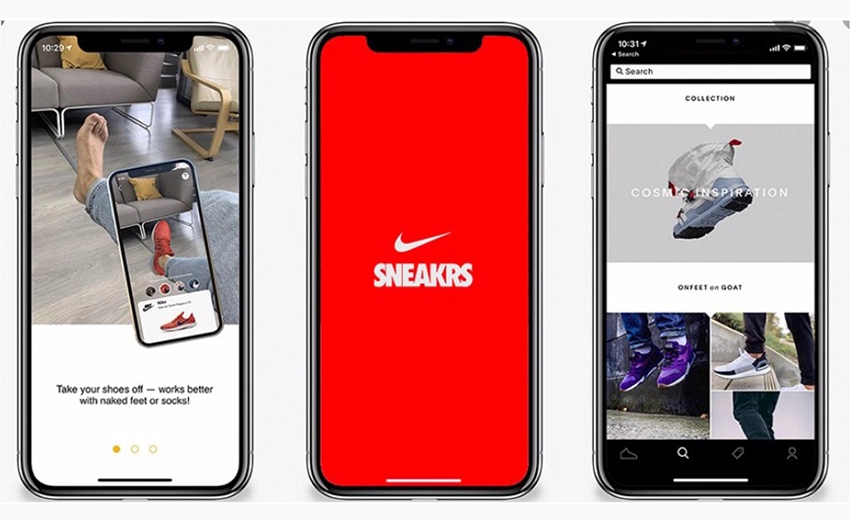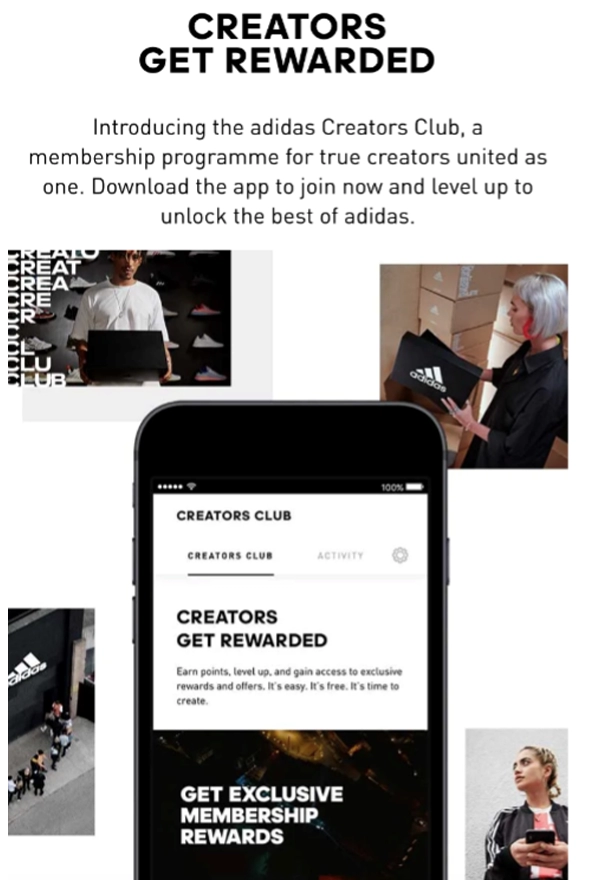Over the past decade, market leaders in sports clothing and apparel, Adidas and Nike, have changed the way consumers not only buy and browse products but how data can be collected from iOS and Android apps. Find out more about the direct and indirect benefits that mobile apps can have to help promote the success of your online business.
Mobile app design that builds relationships between business and consumer

In a growing market, app development is now a factor that market-leading companies such as Nike are expanding their budget for every year. With 170 million users across its range of free interactive apps, this is no surprise. A company having an active app that consumers can engage with allows the business to form a connection with customers, especially when the consumer can apply personal settings and filters on the app that are tailored to them.
Potential direct & indirect benefits of a mobile app
- Help boost sales
- Monitor and track consumer behaviour/trends
- Improve conversion optimisation
- App interactivity positively contributes towards website usability and brand engagement
- Boost self-brand connections which have a direct correlation with long term business success
- Additional revenue or exposure stream for your customer base to get interactive with
- Increase rate of brand loyalty when combined with a positive in-app experience
Mobile app development that puts a focus on user experience
A massive factor that plays a role in the Adidas app and other apps in the industry is the ease of accessibility and the seamless checkout experience. By having personal accounts, a user can pre-save personal information such as addresses and card details which, as a result, reduces the number of clicks in a customer’s checkout journey.
A company having a mobile app not only generates another source of revenue for a business but can also act as an additional marketing channel. Through push notifications on mobile apps, it presents another opportunity that businesses can use to run B2C marketing, whereby they are informing customers about potential sales or new offers that will pop up on their mobile device. This is therefore a lot more likely to be successful in converting a customer than more traditional marketing methods, such as email or billboards where a consumer is a lot less likely or unable to interact.
Mobile app review

Through the different range of interactive apps that Nike offers, they generate a unique user experience that is expressed through a different range of exclusive access points. This is shown through different features such as member-only sales, and access to free exclusive events such as training classes and special offers/promotions.
Drive additional website traffic

Another impact that a business is able to leverage from an app is the traffic that a mobile app can generate. As the result of Nike’s mobile app success showed a digital growth of 38% in Q2 2019, (Digital, 2020).
The integration of different fitness, e-commerce and lifestyle apps has not only increased sales but has resulted in some companies such as Nike and Adidas having the highest ever level of user and customer engagement, therefore promoting promising non-direct benefits of the app, such as consumer data, market patterns and opportunities to improve customer service areas around the business.
Utilising an app that gets customers to engage with your business will not only improve the relationship you have with your customers but act as a great source for collecting consumer data and provides an accessible point of sale. We understand that not every business is operating on the same scale as Nike and Adidas, however, there are some key takeaways that your business can benefit from that are the same, such as:
- Collection of consumer data
- An additional point of sale
- Ability to enable push notifications
- The ability to improve business to consumer relationships
If you would like help to kickstart your businesses mobile app journey, then get in touch with one of our experts today.
At Blue Frontier, we have an award-winning team of specialists and experienced mobile app developers that can develop an outstanding mobile app experience tailored towards your customer's experience. Contact our friendly team to bring your mobile app experience to life.
Mobile apps for the future

With the UK slowly beginning to ease its way back into some degree of normality this opens up new areas of opportunity, but what does this mean for the future of mobile apps?
Back in September, the UK government launched the ‘Track and Trace’ mobile app to help monitor, control and stop the spread of COVID-19. The app had 20.9 million downloads in December alone, which helped build up a valuable data set to understand new COVID-19 patterns and trends, both geographically and to highlight significant areas for transmission.
This trend helps highlight the fact that despite the main purpose of the app being to alert people if they have been in a high-risk area, it can also be used for gathering insightful data and statistics; the same way interactive shopping apps use it to monitor consumer behaviour.
What’s next?
One of the biggest steps taken recently has been large airway companies such as British Airways undertaking the challenge to launch digital “vaccine passports” for when international travel is set to resume on the 17th of May. This will allow people who have been vaccinated to travel without restrictions and for those who have not had a vaccine to submit their negative COVID-19 test results.
The use of this new technology could be a massive stepping stone moving forward in how medical information is stored, displayed and transferred in every day to day life.






